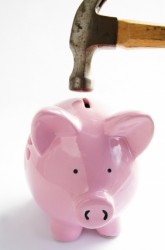 Either you own a big business or a small one, cash flow management is equally important for any kind of business. In today’s uncertain economy with ever rising interest rates, many small businesses face the problem of limited finance.
Either you own a big business or a small one, cash flow management is equally important for any kind of business. In today’s uncertain economy with ever rising interest rates, many small businesses face the problem of limited finance.
So the big question is: How will you manage your cash flow effectively?
To help you with that here are some important guidelines:
Cash balance and Bank Balance:
The bank balance and the cash balance are two different forms of cash. Rarely will the two ever be the same. Do not manage from your bank balance. Do not keep too much money in your bank accounts. The excess money you have can be used more effectively by investing in a proper way and earning competitive rate. Take some time to find out what your minimum balance needs to be.
Analysis bank balance:
It’s absolutely critical that you know exactly what your cash balance is? You must always know the available balance in your bank account. You must be aware of the cheques deposited in your account and also about when your account is to be debited, it might be the cheque you have issued or monthly charges or any fees that has been charged by the bank. You must analyse your bank account every month through its statement.
Fast Collection
There should not be any delay for collection of money in your business. You should collect money as fast as you can. You must try to speed up customer orders by having them fax their orders to you and send out your invoices the same day goods are shipped without making any delays. Indicate on your invoice when payment is due, and specify the penalty interest for late payment.
Quickly Deposit Checks:
This seems only obvious, but it’s extremely important. Always deposit checks the same day they are received. Don’t hold checks until the next day because you lose one day’s float. Key point: you can lose three days of float by not depositing Friday’s checks until Monday. Obtain the checks availability as soon as possible.
Don’t deposit checks in a bank’s Automated Teller Machine or use the Night Depository since you have no evidence that you actually deposited the cheques you said you did. Remember, you only receive a receipt that shows the time and dollar amount on the deposit at the ATM, and you get no receipt at the Night Depositor. Money Disbursement Money is the most important part of your business that you need to have any time to run your business smoothly.
Try to hold the money as long as you can. You should never pay a day sooner than you have to, unless you get a discount for doing so. Pay your invoices on the last day they’re due, not before. Try to mail your payment on Thursday or Friday to pick up a few extra days mail float over the weekend. Use business credit cards for travel, lodging, meals, and small expenses for yourself and your employees. With credit cards you typically don’t have to make payment until 25 days after receiving the statement. Use this float by investing the money. In total, you can typically keep your money invested for 45 days from date of purchase.
Inventory is not Cash The stock of goods that you currently have in your shop should eventually be transformed into cash in your bank account, and the sooner the better. As long as it’s inventory, it’s basically dead weight. If it is not moving, you’re not having cash flow. To minimize the cost of your inventory always attempt to forecast as accurately period you expect the goods to be sold. Stock the goods as per requirement.
Continuity:
Once of the most exceptional ways of controlling and improving cash flow well into the future is by employing something called continuity of sales or services. Continuity is a very important aspect for a business. Continuity sales are simply a contract to purchase products or services on an installment basis for a fixed period of time. You can offer subscription to customers by paying certain amount for certain period. The bigger the subscription, the better deal you get. Business gets more money up front, and the customer gets a better deal in the long run.
